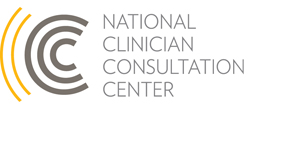We help you help patients prevent HIV transmission during pregnancy
Supporting HIV-negative women with HIV-positive male partners in preventing sexual transmission is an important part of ending perinatal HIV transmissions in the U.S. Perinatal HIV Hotline specialists provide consultation on a range of perinatal HIV issues such as indeterminate HIV tests during pregnancy, high-risk HIV exposures, and emergent labor and delivery scenarios. Our Perinatal HIV Clinician Network helps you connect patients with appropriate providers nationwide.
We work with you to eliminate perinatal HIV transmission
Several interventions, such as routine HIV screening during pregnancy, maximizing maternal health and lowering the viral load during pregnancy, antiretroviral prophylaxis to the infant, and avoiding breastfeeding, are credited with the dramatic drop in perinatal HIV transmission in the last two decades. The NCCC helps you advance this public health success story with expert consultation and clinician-developed tools.
We provide guidance on managing pediatric PEP
The CDC released updated non-occupational PEP guidelines in April, 2016. Regimen selection and dosing information for non-perinatally exposed infants, children, and adolescents (e.g. found needles) can be found in Tables 5 and 6 on pages 31-37 of the guidelines. The NCCC is updating its guidance on management of pediatric PEP outside of the perinatal period to reflect information provided by these updated guidelines. In the meantime, clinicians may continue to call the NCCC for PEP consultation at 888-448-4911.
Resources
- The HIV and Infant Feeding Guidelines at Six Months: Perspectives from National Leaders | NCCC Perinatal HIV Roundtable 2023
 Open PDF | See Dr. Judy Levison’s Slides
Open PDF | See Dr. Judy Levison’s Slides
 Visit our News Post | View the Roundtable (video)
Visit our News Post | View the Roundtable (video)
 Open PDF | Read the Roundtable Summary
Open PDF | Read the Roundtable Summary
See HIV and infant feeding implementation resources:
 Open PDF | The Well Project’s Compiled Resources for Infant Feeding and HIV (as of May 2023)
Open PDF | The Well Project’s Compiled Resources for Infant Feeding and HIV (as of May 2023)
 Open PDF | Johns Hopkins publication: Powell et al (2023) Infant feeding for people living with HIV in high resource settings: a multi-disciplinary approach with best practices to maximise risk reduction
Open PDF | Johns Hopkins publication: Powell et al (2023) Infant feeding for people living with HIV in high resource settings: a multi-disciplinary approach with best practices to maximise risk reduction
 Open PDF | Colorado publication: Abuogi et al (2023) Development and implementation of an interdisciplinary model for the management of breastfeeding in women with HIV in the United States: experience from the Children’s Hospital Colorado Immunodeficiency Program
Open PDF | Colorado publication: Abuogi et al (2023) Development and implementation of an interdisciplinary model for the management of breastfeeding in women with HIV in the United States: experience from the Children’s Hospital Colorado Immunodeficiency Program
 Open PDF | Baylor publication: McKinney et al (2022) Providers Have a Responsibility to Discuss Options for Infant Feeding With Pregnant People With Human Immunodeficiency Virus in High-Income Countries
Open PDF | Baylor publication: McKinney et al (2022) Providers Have a Responsibility to Discuss Options for Infant Feeding With Pregnant People With Human Immunodeficiency Virus in High-Income Countries
 Open PDF | Levison et al (2023) Breastfeeding among people with HIV in North America: a multisite study
Open PDF | Levison et al (2023) Breastfeeding among people with HIV in North America: a multisite study - Updates in Breast/Chestfeeding: Parent Perspectives and Evolving Practice | NCCC Perinatal HIV Roundtable 2022
 Open PDF | Read the Roundtable Summary
Open PDF | Read the Roundtable Summary
 Open PDF | See Dr. Judy Levison’s Slides
Open PDF | See Dr. Judy Levison’s Slides
 Visit our News Post | View the Roundtable (video)
Visit our News Post | View the Roundtable (video) - Preventing Maternal HIV Transmission during Pregnancy and Breastfeeding | NCCC CROI 2020 Roundtable
 Open PDF | From the NCCC
Open PDF | From the NCCC - HIV Testing in Pregnancy | NCCC Statement 2019
 Open PDF | From the NCCC
Open PDF | From the NCCC - ARV Selection for People of Childbearing Potential | NCCC CROI 2019 Roundtable
 Open PDF | From the NCCC
Open PDF | From the NCCC - Does U=U in the Perinatal Setting? | NCCC CROI 2018 Roundtable
 Open PDF | From the NCCC
Open PDF | From the NCCC - Disclosure of HIV Status to Partners | NCCC CROI 2017 Roundtable
 Open PDF | From the NCCC
Open PDF | From the NCCC - Women and PrEP: Pregnancy, Breastfeeding, Implementation | NCCC CROI 2013 Round Table
 Open PDF | From the NCCC
Open PDF | From the NCCC - Informed Choice Breastfeeding in a Resource-Rich Setting | NCCC CROI 2012 discussion
 Open PDF | From the NCCC
Open PDF | From the NCCC - Informed Choice Breastfeeding in a Resource-Rich Setting | NCCC CROI 2012 discussion slides
 Open PDF | From the NCCC
Open PDF | From the NCCC
Helpful Links
- ACOG Committee Opinion on Labor and Delivery Management
 Visit website | From The American College of Obstetricians and Gynecologists
Visit website | From The American College of Obstetricians and Gynecologists - ACOG HIV Testing in Pregnancy
 Visit website | From The American College of Obstetricians and Gynecologists
Visit website | From The American College of Obstetricians and Gynecologists - HIVE (formerly Bay Area Perinatal AIDS Center)
 Visit website
Visit website
 University of California, San Francisco |
University of California, San Francisco |
